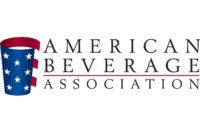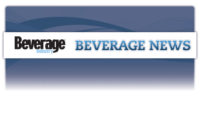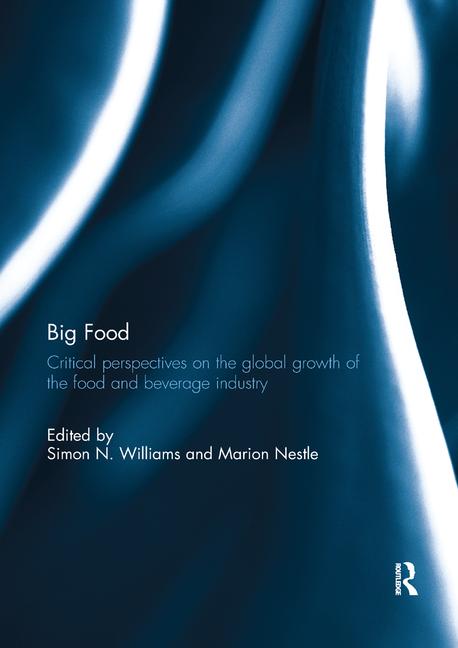One-On-One With The Aba’s Susan Neely
Susan Neely joined the American Beverage Association as president and chief executive officer in May 2005 and immediately jumped into headline issues such as soft drinks in schools, environmental policies and reacquiring the InterBev trade show. Prior to joining the ABA, Neely served as assistant secretary for public affairs at the Department of Homeland Security. She recently took a moment out of her busy schedule to talk to Beverage Industry about her first year at the association, the work the ABA has taken on and her impressions as a new insider in the beverage marketplace.
Q: You have been with the ABA for a little more than a
year now... what have you spent your first year working on?
A: You can divide the focus into two categories, one being to advance the industry’s issue agenda in our
priority areas of childhood obesity, environmental stewardship and water
resources. The other is working with the board to reorganize the ABA
governance committee and board structure to make sure we are involving our
members in the most effective way possible.
On the issues side, childhood obesity has gotten the
most public attention. I think all of the ABA board is very proud of the
commitment that was made in partnership with the Clinton Foundation and the
American Heart Association to change the beverage mix in schools. Even some
of the industry’s harshest critics have been complementary about what
the industry has done in that regard. We’ve also made some good
progress in the environmental and water areas, too.
Q: Can you tell us about some of those issues in more
detail?
A: Water resources is an emerging issue that
I’ve heard from all of my [member] leadership is an area of concern,
not just in this country but around the globe, as we become more concerned
about water supply, drought and the aging infrastructure for the water
supply in our cities.
One of the things we did this year that I think is
going to be very helpful is that we worked with representatives from all
the companies to develop a strategic plan around water resources to really
get out there early in the communities where the bottlers are doing
business and do the kind of education of government officials and consumers
early so that we can avoid becoming some kind of scapegoat for some of the
problems we’re going to be facing as a society regarding our water
supply. The Water Resources Strategic Plan, which was approved by our board
in April and is a very dense document with a lot of components to it, was a
good accomplishment and we’re very much engaged in implementing that
now.
In the environmental arena, the industry has long had
to work to suppress efforts to pass bottle bills at the state level. That
is an issue that was very lively in years past and has re-emerged now.
We worked hard in New York to thwart legislation that would be very onerous to the industry,
and we’ve also just formed a national recycling partnership with
other major government and industry organizations to try to address the
recycling issue in a more constructive way — let’s not pass
bottle bills that have been proven to be completely ineffective in the
states that have had them. They have not done what they were intended to
do, which is increase recycling rates and reduce litter, and have cost the
industry millions of dollars to implement and support. Let’s not go
that way as a society; let’s create a recycling culture in this
country that is supported in a way that makes sense and will be more
effective.
Q: Has there been anything that has surprised you
since joining the ABA?
A: The biggest learning has been understanding more
clearly the power of the companies’
individual trademarks, both to garner positive attention as well as to
garner criticism that may not be accurate. Because of the visibility and
the strength of the trademarks, the industry can attract a lot of negative
attention from all kinds of activists and conspiracy theorists out there.
It’s sort of the good and the bad of the trademarks. I certainly
understood that at an intellectual level, but until you’re working
with the industry every day, you don’t appreciate what a lightening
rod the trademarks can be.
Q: What role can the food and beverage industry play
in public health?
A: Anybody in the food and
beverage industry recognizes they have a very
special relationship with consumers, a very intimate relationship. People
go and purchase that product to consume and purchase it for their children
to consume, and they have high expectations for its quality and safety and
taste. People in the beverage industry understand that because of this
special relationship that they have with consumers, they also have to look
for ways to help address societal concerns.
I think this industry has been tremendously effective
in identifying areas where they can make a difference — the school
beverage policy, supporting fitness programs that help kids get up and
moving, supporting through foundation dollars and grants the nutrition
education programs that have been developed around the country. Those are
things the industry can do beyond just making a good, safe product. I think
those are very appropriate without expecting the industry to solve all of
[the issue], which is impossible.
Q: What can companies do to avoid becoming the
scapegoat on some of these issues?
A: I think it’s, first of all, recognizing
that you have to do something — industry can’t say ‘This
isn’t our problem, we make products, that’s all we do.’ I
think the consumer expects more from these companies with such powerful
trademarks. That’s just the expectation in this day and age. Once you
accept that, you look for ways that you can make a difference that are
important and appropriate. I think the companies have individually found
ways to do that and should get more credit for that. And they have found
ways as an industry together, like the school beverage policy, to make a
difference.
Our work in water resources is a good example of
trying to get out ahead [of an issue]. We see an issue emerging in this
country around water stewardship. Let’s move in there now and do some
education in what our responsibility is, what our water use is and what our
companies are already doing to protect the water supply. If you get in
there early, that can help prevent knee-jerk reactions from policymakers
who are looking for a way to solve a problem and don’t always have a
full command of the issue.
Q: We’re coming up on the first InterBev show
since the ABA reacquired it late last year... what are you hoping to see at
the show?
A: We’re hoping to see a diverse
participation from companies throughout the beverage industry, and we hope
to deliver a very high-quality education program that meets the needs that
some of the leaders of the industry have told us are out there. What we
really want to do with this is create a forum for the industry as a whole
to come together as a community and learn, and to network and to get ideas
on technology, equipment and products that can be helpful to them. We think
that is the unique niche of InterBev — one that brings all the
players in the industry together in a large forum that hasn’t
happened for a while.


